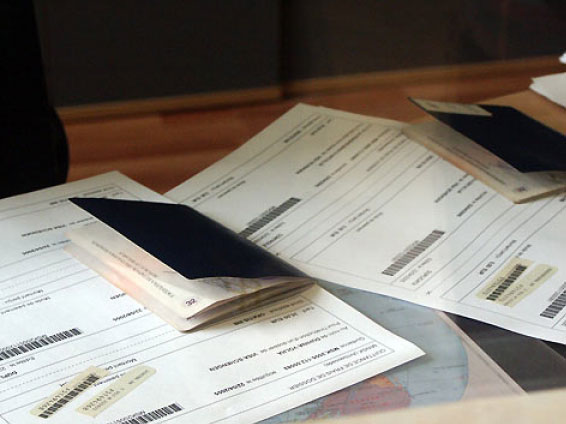Baku, Azerbaijan, April 2
By Sabina Ahmadova - Trend:
The EU hopes that the agreements on visa regime simplification and readmission between the EU and Azerbaijan will come into force this summer, the head of the EU representative office to Azerbaijan, Malena Mard, told media on April 2.
Mard made the statement during the presentation of a report on the country's progress in 2013 as part of the European Neighbourhood Policy.
She said that the EU wants large-scale reforms, adding that some 15.4 billion euros were allocated for 2014-2020. The sum, as Mard noted, proceeds from the EU significance attached to the Neighbourhood Policy.
"The EU hopes that the agreements on visa facilitation and readmission signed between the EU and Azerbaijan will come into force in summer," he said.
Azerbaijan and the EU signed a visa facilitation agreement as part of the EU summit in Vilnius in November last year.
On Feb.28 Azerbaijan signed a readmission agreement with the European Union, and currently the country is preparing to sign readmission agreements with Norway and Switzerland, Azerbaijani Deputy Foreign Minister Mahmud Mammadguliyev told Trend previously.
When the new rules come into force, a decision on issuing a visa will be made within 10 days, in case of emergency - in two days or less.
The application will cost 35 euros for Azerbaijani citizens, and a list of required documents will be reduced for certain categories of the population, in particular - relatives, members of official delegations, students, teachers, businessmen, scientists, and journalists.
The visa facilitation and readmission agreements are planned to be signed as part of the EU Eastern Partnership program aimed at closer cooperation of the EU with six former Soviet republics - Azerbaijan, Armenia, Belarus, Georgia, Moldova and Ukraine.
Malena Mard stressed that the EU attaches great importance to Azerbaijan in energy cooperation.
She also said that the report stressed the importance of improving the judicial system in Azerbaijan, and successful activity of ASAN service, adding that the EU has contributed to it as well.
"The EU cooperates with the civil society in many areas," she said. "It hopes that this cooperation will continue."
"The EU is interested in development of relations, but this process must be based on an open dialogue," she said. "We are cooperating with Azerbaijan as part of the Eastern Partnership. Along with the energy sector, we would like the cooperation to be developed in the sphere of human rights. Eastern Partnership is a peacekeeping tool."
Further, she said the mentioned report also includes the Nagorno-Karabakh conflict.
"Unfortunately, no progress has been achieved in the conflict settlement. The two presidents met in November 2013 and decided to continue these meetings," Mard added.
She said that the EU supports the OSCE Minsk Group's activity, and one of the recommendations reflected in the report, is to allow the EU representatives to visit Nagorno-Karabakh and surrounding areas.
"The EU is not a member of the Minsk Group. We are not a negotiating party. We have been informed about the complexity of the conflict, and we would like to see the progress towards peace. In this process, the main parties are Azerbaijan, Armenia and OSCE Minsk Group co-chairmen."
The conflict between the two South Caucasus countries began in 1988 when Armenia made territorial claims against Azerbaijan. Armenian armed forces have occupied 20 percent of Azerbaijan since 1992, including the Nagorno-Karabakh region and seven surrounding districts.
Azerbaijan and Armenia signed a ceasefire agreement in 1994. The co-chairs of the OSCE Minsk Group, Russia, France and the U.S. are currently holding peace negotiations.
Armenia has not yet implemented the U.N. Security Council's four resolutions on the liberation of the Nagorno-Karabakh and the surrounding regions.
translated by NH
edited by SI
Simplified EU-Azerbaijan visa regime agreements may start this summer
The EU hopes that the agreements on visa regime simplification and readmission between the EU and Azerbaijan will come into force this summer, the head of the EU representative office to Azerbaijan, Malena Mard, told media on April 2.






